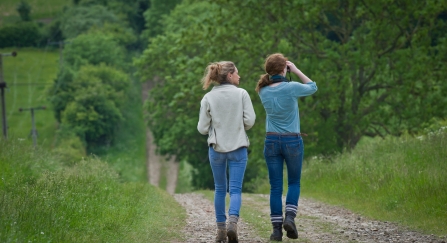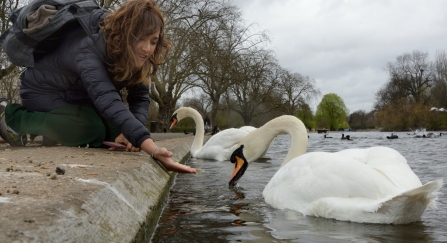The cost of stress
As our physical health improves with advances in medicine, the ability to cope with our mental anxieties seems to be faring less well. This can have an impact both at home and at work.
According to mental health charity, Mind:
- 25% of us suffer from depression and/or anxiety in any given week.
- 15% of us experience a mental health issue at work every year.
The personal cost of stress
Recent research conducted by Mind found that for one in three of those polled, work caused more stress than either debt or health concerns. People reported feeling anxious, with 7-10% having felt suicidal. Shockingly, those who report suicidal thoughts during their lifetime has now risen to one in 20 of us, with workers within the construction industry being particularly badly affected. Research commissioned from within this industry found that there were over 1,400 suicides of construction workers from 2011-2015.
The financial cost of stress
It’s not just staff health that’s suffering. The impact of staff absenteeism (in addition to presenteeism) on businesses due to sickness is huge and, according to Acas, is often higher in larger-sized organisations.
Absenteeism is estimated by the Centre for Mental Health to cost UK businesses around £35bn a year.
According to the Health and Safety Executive, work-related stress or anxiety resulted in 15.4m working days being lost in 2017-18, over half of all sickness days taken. As an employer you may consider yourself to be sensitive and supportive of the mental health issues your staff are experiencing.
But do you even know if your staff are stressed, and to what extent? In 2014 one in five people polled by Mind and YouGov admitted to having taken a day off due to stress, but 90% of those questioned admitted to giving a different reason for their absence. While we’re talking about mental health more openly than ever before, for many people admitting they’re suffering still carries a stigma and often workers suffer in silence.
Many companies are actively involved in overcoming this stigma and it does make a difference. The same poll revealed that staff would feel more loyal, motivated and committed if they perceived their employer to be taking action to support staff mental wellbeing. Those questioned felt they would probably recommend the company as being a good place to work.
The links between our physical and mental health are strong. The more sedentary we become the greater the cost to businesses and to the UK economy.
Get Britain Standing found that 90% of employees said they would like the opportunity to be more physically active in the workplace. Many companies now promote physical activity during the working day, as well as improving the overall fitness of employees.
Research by the British Heart Foundation found that companies have also benefitted from increases in staff attendance and a decrease in job stress, seeing a reduction of 27% in sick days for those staff who engaged in physical activity.

© Matthew Roberts
What can nature do for your employees?
Nature improves your health
Daily contact with nature is linked to reduced levels of chronic stress, reductions in obesity and improved concentration, so get your colleagues outside and help them feel healthier.
Nature makes happier workers
Make your office greener by creating an outside area and encouraging lunchtime walks. There is a 10% reduction in work absence if employees are able to look at green space rather than a wall.
Green offices boost productivity
Adding plants and photos of wildlife (or even playing birdsong!) can help your colleagues at work. Employees are 15% more productive when workplaces have even a few houseplants, but why not go even further?
Natural Ways to Wellbeing (https://www.youtube.com/watch?v=p9I_jExe2I4)
© Wildlife Trusts 2019
How to take advantage of the benefits of nature
One of the most effective and cheap ways of reducing stress is engaging with nature. It doesn’t take long to achieve great results – just five minutes!
Walking at work
When it comes to sitting behind a desk all day, Dr James Levine, a leading obesity expert in America, warns that “sitting is the new smoking …Go out for a walk, get some fresh air for a meeting”; a suggestion that is endorsed by Public Health England (PHE).
If you’re lucky enough to have green space outside your window, don’t just look at it - encourage staff to take a break and go for a short walk outside.
A recent study carried out by the University of Exeter Medical School found that spending two hours in nature was so beneficial that it could join the recommended five a day of fruit and veg and 150 minutes of exercise a week as official health advice – even if participants just sat and enjoyed the peace rather than taking part in a physical activity.
That’s a chunk out of the working day so be reassured that research by the University of Essex concluded that the largest positive effect on self-esteem resulted from a walk of just five minutes – definitely achievable in a lunch break!
Walking meetings
Walking meetings are not just good for physical heath but there are numerous claims that they’re great for creativity, too! It’s suggested that the best results can be achieved if there is an end destination and groups are small. Give it a try - your staff will benefit, as may your business!
If walking isn’t a practical option and you have picnic benches or chairs in the grounds, why not take your boardroom outside?
Woodland bathing
If your grounds have a wooded area – even better! Popularised in Japan and known as ‘woodland bathing’, shinrin-yoku involves time spent walking or even just sitting passively among trees and is reported to have numerous mental and physical health benefits, including lowering blood pressure, boosting the immune system and improving memory, concentration and sleep.
Go wild at work
Encouraging wildlife to your workplace
Whether you have acres of grounds, or even just a balcony, there are always opportunities to make improvements for wildlife, which your staff can take part in. Several companies in Surrey have introduced bird-feeding stations, bat boxes, bug hotels, hedgehog houses and more! Even cutting back on mowing will result in an immediate benefit to wildlife.
A room with a view
A room with a view of a green space is much healthier for staff than one without. There’s a 10% reduction in work absence if employees are able to look at a green space rather than a wall!
30 Days Wild
If you want to see a real difference to staff health, why not take part in The Wildlife Trusts’ national 30 Days Wild Campaign?
Studies by the University of Derby show that by connecting with nature for 30 consecutive days, there is a significant increase in the health and happiness of participants. The study revealed that these positive effects aren’t just felt during 30 Days Wild, but for months afterwards, with 30% of participants feeling happier after taking part.
Even organising a few activities for employees during the event will highlight the benefits of engaging with nature, in your grounds or elsewhere.

© Nick Upton/2020VISION
Volunteering through work
Most companies are switched on to the benefits of volunteering in the community
An independent review carried out by the University of Essex has found that 95% of Wildlife Trust volunteers with low wellbeing reported an improvement within six weeks of involvement with their Wildlife Trust. We always have opportunities for small numbers of staff to join our existing volunteers and engage in practical tasks around the county throughout the year, and we are also able to organise larger team days for you.

